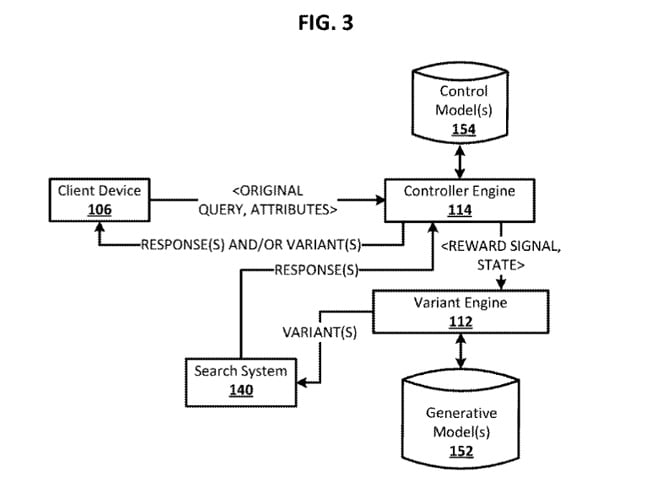Unveiling Google's Perspectives Filter and Carousel: A Mobile SERP Game Changer
On June 10, 2023, Google introduced the highly anticipated Perspectives feature within its mobile search results, a development initially teased at...
2 min read
 Joy Youell
:
Oct 6, 2023 8:28:43 AM
Joy Youell
:
Oct 6, 2023 8:28:43 AM
.png)
A Google patent was published on May 30, 2023, titled "Generating Query Variants Using A Trained Generative Model."
Originally filed in 2018, this patent uses a trained generative model to explore query variants.
SEOs are deeply interested in crucial SERP features like People Also Ask (PAA) and People Also Search For (PASF), so this is hugely relevant for the current search changes we’re watching unfold.
We are seeing the reality of a trained generative model to generate query variants for SERP features such as "People Also Search For" and "People Also Ask," and potentially more.
Here’s the patent info:
Generating Query Variants Using A Trained Generative Model
US 11663201 B2
Date Granted: May 30, 2023
Date Filed: April 27, 2018
Assignee Name: Google LLC

While the patent specifically mentions "People Also Search For," it's reasonable to assume that this process could also be applied to PAA.
As with any patent, it's important to remember that we don't know if Google has implemented it or plans to. But what’s interesting is how it describes the generation of query variants for entirely new queries and for long-tail queries with limited available data.
This is significant considering that Google states that 15% of queries are entirely new to the search engine. The generative model utilizes neural networks, including memory layers, to predict which query variants to generate, even for less common queries.
To provide a clearer understanding of the patent, let's highlight some key points:
The patent reveals that query variants can be generated dynamically using a trained generative model based on tokens from the original queries and additional input features.
The system can generate query variants even when the model has not been specifically trained on those queries. This capability extends to entirely new queries and "tail" queries with limited data.
The generative model can be trained based on user submissions of previous queries. Additionally, query variant training data can be derived from query pairs that share clicks on the same documents, emphasizing the role of user engagement.
The patent explains that the model can be trained as a multitask model, enabling it to generate various types of query variants, including follow-up queries, generalization queries, canonicalization queries, language translation queries, entailment queries, and more.
After generating query variants, the model scores them, providing response scores for each variant. The system can grade these variants by checking for answers, helping detect potentially misleading or irrelevant query variants.
The patent suggests that the system can return more than just query variants. It can provide various responses, such as search results, knowledge graph entities, null responses (no answer), or prompts for clarification.
The model can consider factors beyond query tokens, including "additional input features" such as location, user tasks, weather, and more. This enables personalized query variants based on context.
Beyond query variants, the model can also generate or retrieve ads and other content for display in the search engine results pages (SERPs).
The patent suggests that different generative models can be employed for various attributes or tasks, making the system adaptable to different contexts like shopping, travel planning, and more.
Understanding how Google employs a trained generative model to generate query variants sheds light on the complexity behind SERP features like People Also Search For and People Also Ask.
These insights reveal the potential for personalized, context-aware search results and underscore the sophistication of Google's systems.
The next time you encounter these features in the SERPs, you'll have a deeper appreciation for the technology driving them.
.png)
On June 10, 2023, Google introduced the highly anticipated Perspectives feature within its mobile search results, a development initially teased at...
.png)
Google is continually pushing the boundaries of what's possible.
-Jun-30-2025-05-12-21-2589-PM.png)
Google just dropped the June 2025 core update, and SEOs everywhere are either celebrating or reaching for antacids. This marks the second major core...